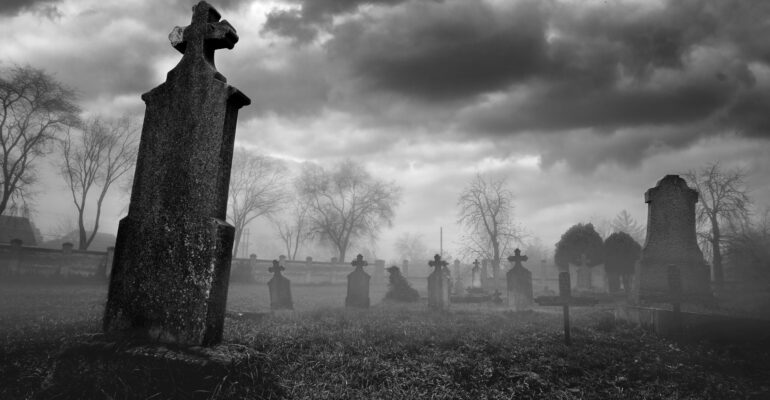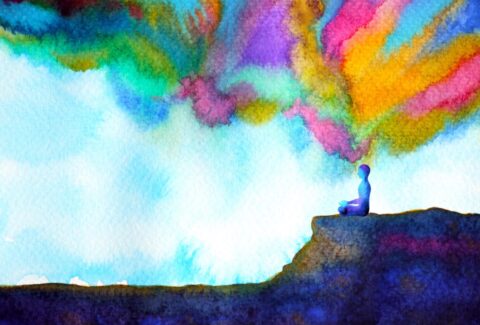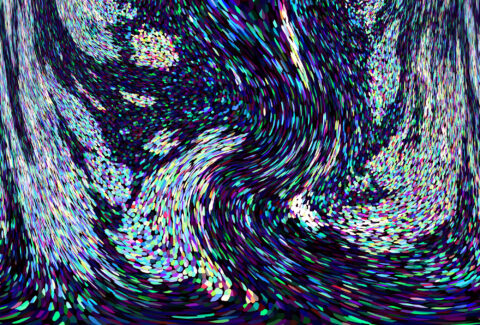Confronting Mortality: A Path to Liberation and Meaning through Existential Therapy

Confronting Mortality: A Path to Liberation and Meaning through Existential Therapy
Mortality. It is the most universal truth of our existence, yet it remains the most difficult to truly confront. We are born, we live, and we die. The boundaries of our lives are finite, yet we often ignore or push away this inherent fact, choosing to live in the illusion of permanence.[1] This dissonance between the knowledge of our mortality and the lived experience of life can create profound tension, often manifesting as anxiety, avoidance, and existential dread.[2]
Our awareness of mortality is a paradox. It is both a source of fear and an invitation to live fully. In acknowledging our inevitable end, we are given the precious opportunity to live with intention, to seek meaning, and to cultivate presence.[3] This realization—however unsettling—compels us to examine how we wish to spend our fleeting time on this earth. Do we choose to live authentically, aligned with our true selves and values, or do we succumb to distractions, conforming to the expectations of others and the demands of society?
Existential therapy[4] offers a framework for exploring these very questions. Rooted in the work of thinkers such as Viktor Frankl[5], Irvin Yalom, and Rollo May[6], existential therapy invites individuals to confront the reality of their own mortality and use this awareness to shape a life of meaning and authenticity. Frankl, in his seminal work Man’s Search for Meaning, emphasized the profound power of human agency, even in the face of suffering and death. He argued that life’s meaning is not given but must be discovered through the choices we make, especially in the face of adversity and mortality.
In Existential therapy, mortality is not a force that paralyzes or diminishes; it is the catalyst for transformation. The therapist’s role is to gently guide the person to face this fundamental reality, to explore the fear and anxiety that arise from it, and ultimately to help the individual embrace the full range of their human experience, knowing that time is limited. In doing so, existential therapy encourages a shift from a focus on avoiding death to an emphasis on living a life that is rich in meaning, purpose, and connection.
The Four Existential Concerns:
Existential therapy is built upon confronting four central concerns that define the human condition:
- Death: Our mortality is an undeniable fact, yet it is also the ultimate source of freedom. The awareness of death forces us to examine how we are living and to decide if we are truly living authentically or merely existing. Through this confrontation, we gain the clarity to pursue what truly matters.[7]
- Freedom: With mortality comes freedom—the freedom to make choices, to act in alignment with our values, and to shape our lives. This freedom, while empowering, also comes with the weight of responsibility.[8] We are not mere passengers on a predetermined path; we are the architects of our own existence.
- Isolation: While we may be surrounded by others, we each ultimately face life and death alone. This existential isolation can bring profound loneliness, yet it also provides an opportunity for self-discovery and independence.[9] In embracing our solitude, we can find connection on a deeper, more authentic level with others.
- Meaning: In the face of mortality, we must ask ourselves: What gives my life meaning? Is it the relationships I nurture, the work I do, or the way I engage with the world around me? Existential therapy encourages individuals to confront this question head-on and to choose the meaning they will assign to their lives.[10]
From Mortality to Liberation:
Rather than allowing the awareness of mortality to paralyze us, existential therapy offers the tools to transcend it. By embracing death as a part of life, we are freed from the tyranny of endless distractions, societal expectations, and the endless chase for validation.[11] We are liberated to choose how we spend our time and energy, to let go of superficial goals, and to pursue what is deeply meaningful.
In this way, existential therapy transforms the fear of death into a powerful motivator for life. The existential therapist helps the individual not only accept mortality but also use it as a guiding principle for living authentically. The existential journey is one of constant reflection, adjustment, and growth, as the person strives to live in accordance with their true desires, free from the constraints of external pressures and societal norms.
Conclusion:
Confronting mortality does not diminish the value of life; rather, it amplifies it. Through existential therapy, we can learn to view death not as a burden but as an invitation to live more fully, to embrace our freedom, and to create meaning from the raw material of our finite existence. In facing death with courage, we discover that the true essence of life is not found in avoiding mortality, but in embracing it fully—recognizing that it is precisely because we are finite that our choices and our lives have meaning.
In this light, mortality becomes not a shadow looming over us but a beacon that illuminates the path to a life well-lived. Through existential therapy, we are reminded that the way we confront death is the way we confront life—and it is through this confrontation that we come to know our deepest truths and live our most authentic lives.
Would you like to help your patients and clients find freedom, authenticity, and meaning in life? If so, join us for our 8-week Existential Psychotherapy Certificate Course, held virtually starting on February 26, 2025. Click HERE to register.
[1] Green, O. Harvey. “Fear of death.” Philosophy and Phenomenological Research 43.1 (1982): 99-105.
[2] Vos, Joel. “Death in existential psychotherapies: A critical review.” Curing the dread of death: theory, research and practice 145 (2018).
[3] Kundu, Devaleena. “The paradox of mortality: Death and perpetual denial.” Death representations in literature: Forms and theories (2015): 8-23.
[4] Van Deurzen, Emmy. “Existential therapy.” The Handbook of Individual Therapy. sixth ed. London, England: Sage (2014): 155-178.
[5] Kovacs, George. “The philosophy of death in Viktor E. Frankl.” Journal of Phenomenological Psychology 13.2 (1982): 197.
[6] Pitchford, Daniel B. “The existentialism of Rollo May: An influence on trauma treatment.” Journal of Humanistic Psychology 49.4 (2009): 441-461.
[7] Marseille, A. “Meaning in the face of Death: Implications for existential counseling.” J Ment Health Soc Be-hav 3.2 (2021): 145.
[8] Todres, Les. “Experiential–Existential Therapy: Embodying Freedom and Vulnerability.” Existential Therapy. Routledge, 2012. 67-80.
[9] Sadri Demichi, Esmaeil, and Shokofeh Ramezani. “Effectiveness of existential therapy on loneliness and death anxiety in the elderly.” Aging Psychology 2.1 (2016): 12-1.
[10] Wong, Paul TP. “Meaning therapy: An integrative and positive existential psychotherapy.” Journal of Contemporary Psychotherapy 40.2 (2010): 85-93.
[11] Aho, Kevin. One beat more: Existentialism and the gift of mortality. John Wiley & Sons, 2022.






